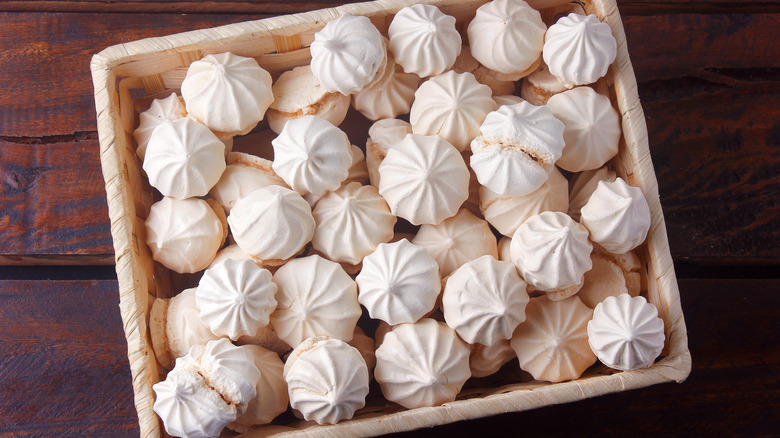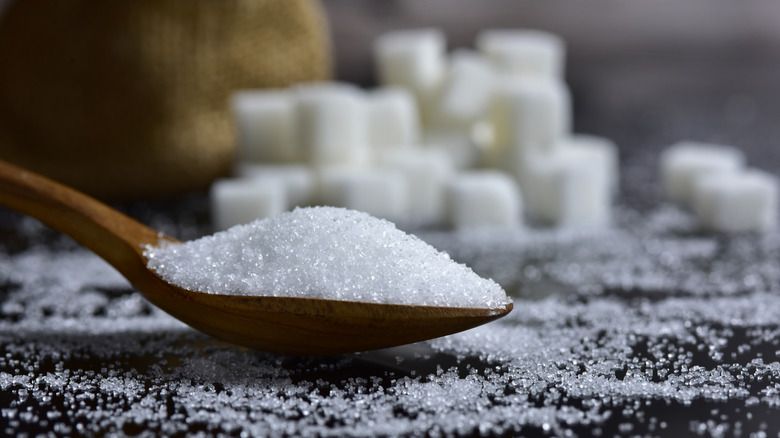Are Meringues A Kosher Dessert To Put On Your Passover Menu?
Every spring, Jewish communities observe Passover in celebration of the Israelites' emancipation from slavery in ancient Egypt. A key aspect of Passover is the seder, a meal in which wine, matzah (unleavened bread), and bitter foods are served, followed by readings, songs, and sweets. Meringue, in particular, is an excellent Passover dessert, as its light simplicity soothes the palate after a night of bitter foods. It's often served in the form of meringue cookies, on its own in the shape of a nest, sprinkled over matzo cakes, or as the base of a pavlova (a meringue cake served with berries).
When preparing any dish for Passover, you must keep kosher rules in mind. Part of the holiday's observance entails dietary restrictions that forbid any food or drink containing leavened grain (chametz). Some communities also avoid foods bearing similarities to grains (kitniyot). The main ingredients in a meringue recipe (eggs and sugar) aren't typically classified as chametz, though they may have been processed in an environment that is not chametz-free. Some white sugars are also processed with bone char, which is largely classified as treyf (not kosher) under the mandate that any food unfit for a dog cannot be considered kosher. As long as your eggs and sugar are kosher, however, you can freely enjoy meringues for Passover.
How to ensure your sugar and eggs are kosher
The best way to ensure your sugar and eggs are safe for your Passover meringues (or in general) is to check their packaging. Some artificial sweeteners also fall under the kosher umbrella.
Kosher eggs must come from a "pure" fowl. According to the Yoreh De'ah, only eggs that are round on one side and pointed on the other can be classified as pure, so finding a kosher egg may require close examination. Consuming blood is also forbidden, meaning eggs must be checked for blood spots before they can be eaten. While many traditional customs revolve around eggs, their observance varies between communities.
Kosher-certified items, which have been inspected and approved by a rabbinic agency, will be classed as "K" or "OU" for kosher. This will not only mean that the foodstuff itself is kosher, but that its processing method and environment are also safe. Different certifying agencies use different symbols, so do some research before heading to the store.
Passover, however, requires slightly different rules. An item marked "K" may not be suitable for Passover due to the additional rules surrounding chametz, which aren't required for a general kosher certification. For this reason, an additional "P" classifier is used to show that an item is suitable for Passover specifically. If you manage to find some kosher sugar or sweetener for your meringues, make sure it's also Passover-safe.

